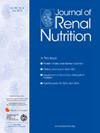Still a Long Way to Go, the Potential of ChatGPT in Personalized Dietary Prescription, From a Perspective of a Clinical Dietitian
IF 3.2
3区 医学
Q2 NUTRITION & DIETETICS
引用次数: 0
Abstract
Objective
Prominent large language models, such as OpenAI's Chat Generative Pre-trained Transformer (ChatGPT), have shown promising implementation in the field of nutrition. Special care should be taken when using ChatGPT to prescribe protein-restricted diets for kidney-impaired patients. The objective of the current study is to simulate a chronic kidney disease (CKD) patient and evaluate the capabilities of ChatGPT in the context of dietary prescription, with a focus on protein contents of the diet.
Methods
We simulated a scenario involving a CKD patient and replicated a clinical counseling session that covered general dietary principles, dietary assessment, energy and protein recommendation, dietary prescription, and diet customization based on dietary culture. To confirm the results derived from our qualitative observations, 10 colleagues were recruited and provided with identical dietary prescription prompts to run the process again. The actual energy and protein levels of the given meal plans were recorded and the difference from the targets were compared.
Results
ChatGPT provides general principles overall aligning with best practices. The recommendations for energy and protein requirements of CKD patients were tailored and satisfactory. It failed to prescribe a reliable diet based on the target energy and protein requirements. For the quantitative analysis, the prescribed energy levels were generally lower than the targets, ranging from −28.9% to −17.0%, and protein contents were tremendously higher than the targets, ranging from 59.3% to 157%.
Conclusion
ChatGPT is competent in offering generic dietary advice, giving satisfactory nutrients recommendations and adapting cuisines to different cultures but failed to prescribe nutritionally accurate dietary plans for CKD patients. At present, patients with strict protein and other particular nutrient restrictions are not recommended to rely on the dietary plans prescribed by ChatGPT to avoid potential health risks.
从临床营养师的角度来看,ChatGPT在个性化饮食处方方面的潜力还有很长的路要走。
背景:著名的大型语言模型,如OpenAI的ChatGPT,在营养领域已经显示出很好的实现前景。当使用ChatGPT为肾功能受损患者开蛋白限制饮食处方时,应特别注意。当前研究的目的是模拟慢性肾脏疾病(CKD)患者,并评估ChatGPT在饮食处方背景下的能力,重点是饮食中的蛋白质含量。方法:我们模拟了一个涉及CKD患者的场景,并复制了一个临床咨询会议,包括一般饮食原则、饮食评估、能量和蛋白质推荐、饮食处方和基于饮食文化的饮食定制。为了证实我们定性观察的结果,我们招募了10位同事,并向他们提供了相同的饮食处方提示,让他们再次进行这个过程。记录给定膳食计划的实际能量和蛋白质水平,并比较与目标的差异。结果:ChatGPT提供了与最佳实践总体一致的一般原则。对CKD患者能量和蛋白质需求的建议是量身定制的,令人满意。它没有根据目标能量和蛋白质需求制定可靠的饮食。定量分析中,规定能量值普遍低于指标,范围为-28.9% ~ -17.0%,蛋白质含量显著高于指标,范围为157% ~ 59.3%。结论:ChatGPT有能力提供通用的饮食建议,提供令人满意的营养建议和适应不同文化的菜肴,但未能为CKD患者开出营养准确的饮食计划。目前,对蛋白质和其他特定营养素有严格限制的患者不建议依赖ChatGPT提供的饮食计划,以避免潜在的健康风险。
本文章由计算机程序翻译,如有差异,请以英文原文为准。
求助全文
约1分钟内获得全文
求助全文
来源期刊

Journal of Renal Nutrition
医学-泌尿学与肾脏学
CiteScore
5.70
自引率
12.50%
发文量
146
审稿时长
6.7 weeks
期刊介绍:
The Journal of Renal Nutrition is devoted exclusively to renal nutrition science and renal dietetics. Its content is appropriate for nutritionists, physicians and researchers working in nephrology. Each issue contains a state-of-the-art review, original research, articles on the clinical management and education of patients, a current literature review, and nutritional analysis of food products that have clinical relevance.
 求助内容:
求助内容: 应助结果提醒方式:
应助结果提醒方式:


